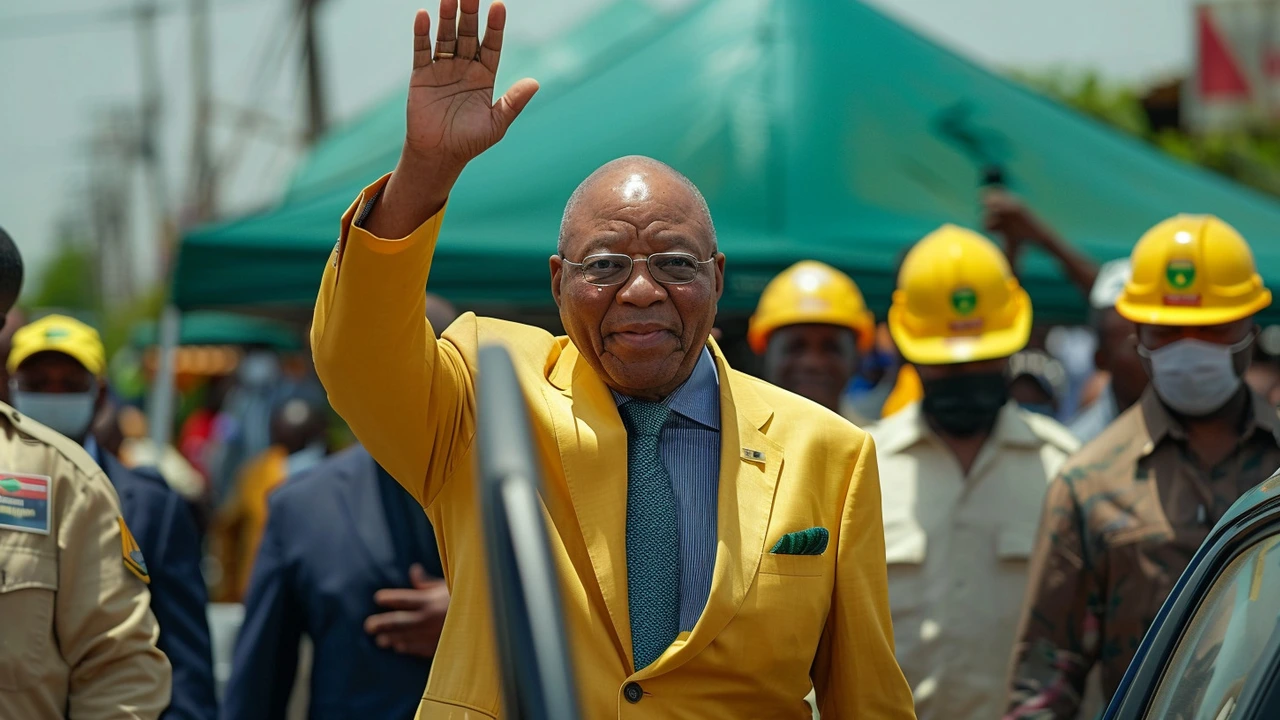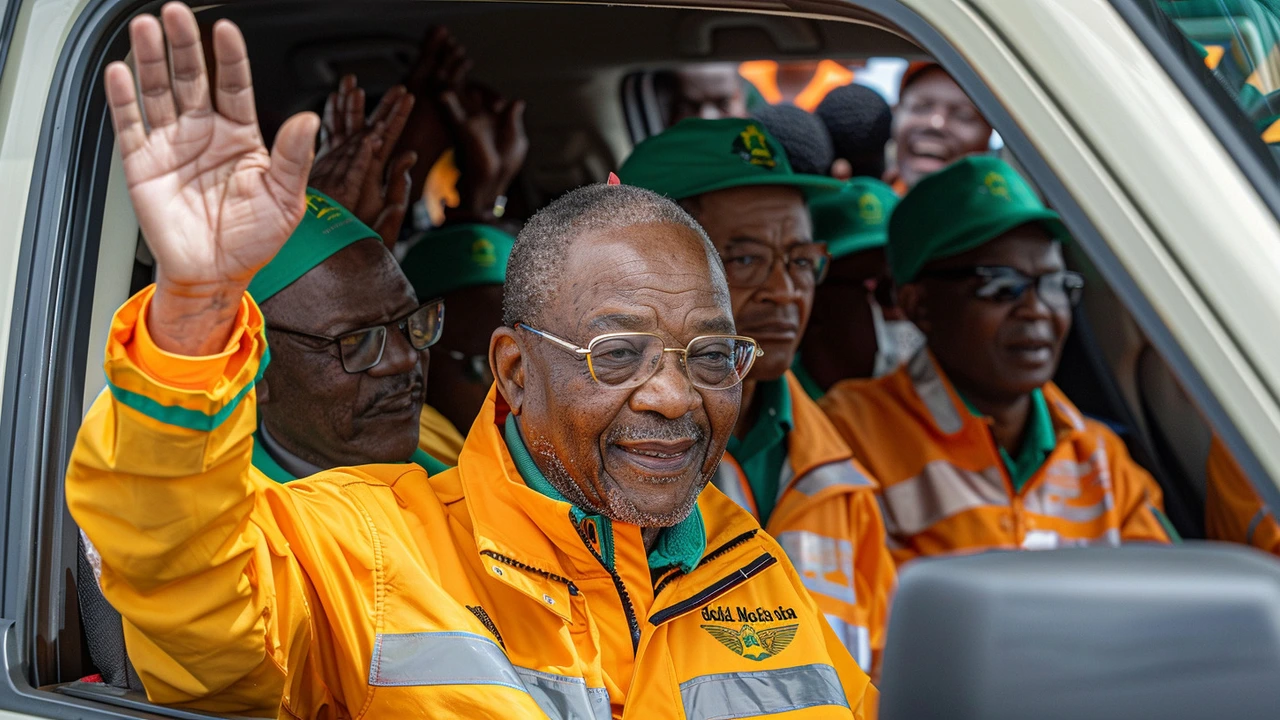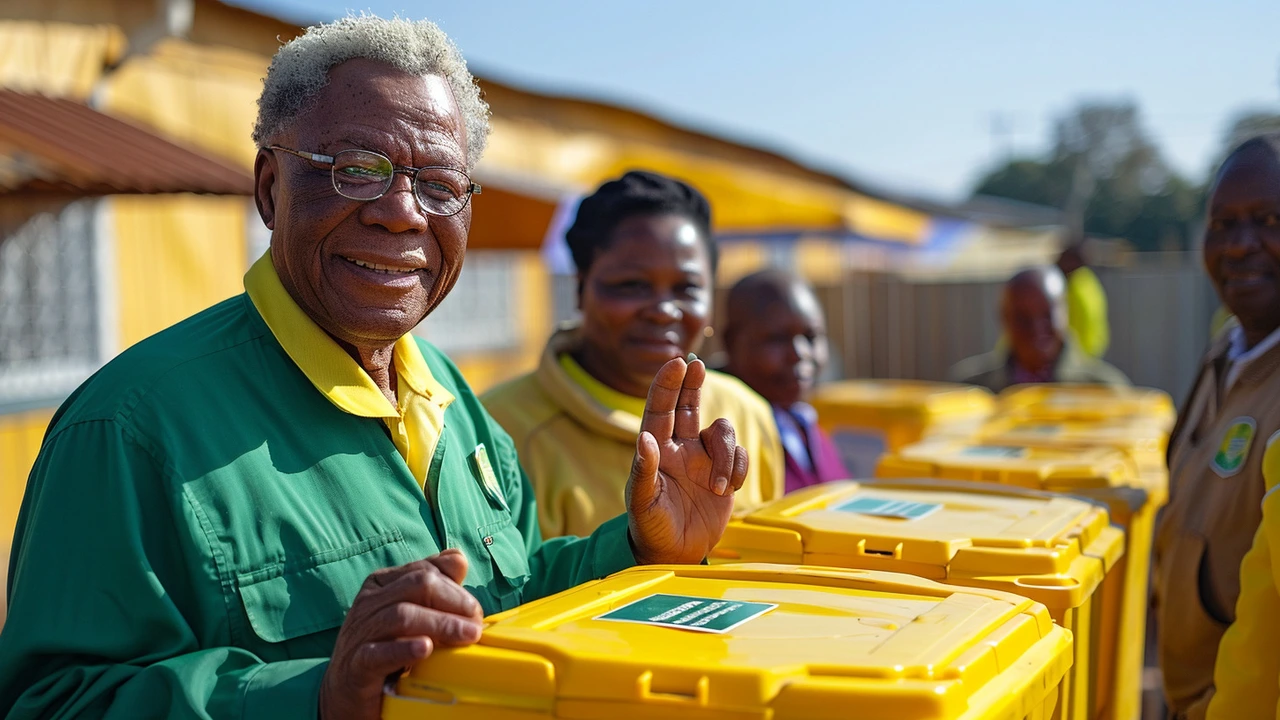
Historical Vote Cast by Zuma
In a significant political moment, former South African President Jacob Zuma, now the leader of the Umkhonto weSizwe (MK) Party, cast his vote for the 2024 general elections at the Ntolwane Primary School polling station in Nkandla, KwaZulu-Natal. This event, marked by enthusiasm and loud cheers, reflected a rare occurrence: a former African National Congress (ANC) president openly supporting a different political party.
Dressed in an MK Party-branded shirt and cap, Zuma was greeted with ululations and applause from supporters as he arrived at the polling station. The anticipation surrounding his appearance was undeniable, highlighting his continued influence in South African politics. This election marks 30 years since the end of apartheid, emphasizing the significance of each vote cast in shaping the nation's future.
The Formation and Journey of the MK Party
The MK Party, founded in December 2023 by Jabulani Khumalo, emerged as a new contender in the complex landscape of South African politics. In a dramatic twist, Khumalo, the party's founding leader, was ousted just five months later in May 2024. The party's early months have been turbulent, embroiled in legal disputes and internal power shifts.
A notable legal victory came when the MK Party won a battle against the ANC regarding the use of the MK name and logo in April 2024. This ruling allowed the party to distinguish itself and move forward in the political arena. Despite these victories, the party faced a setback when the Constitutional Court ruled Zuma ineligible to stand as a Member of Parliament in May. This ruling, however, did not deter him from leading the party and playing an active role in the elections.

Zuma's Continuing Influence
Despite his ineligibility to run for a parliamentary seat, Jacob Zuma remains a central figure in the MK Party and South African politics. His decision to lead the MK Party and participate in the elections speaks volumes about his continued commitment to influencing the country's political landscape. Many see his involvement as a testament to his enduring influence and ability to mobilize support.
The MK Party's presence in the 2024 elections is a reminder of South Africa's diverse and dynamic political spectrum. It underscores the complexity of the nation's journey towards democracy and the varying voices that contribute to its narrative. As citizens cast their votes across the 23,292 voting stations open nationwide from 7 am to 9 pm, the participation of figures like Zuma adds layers of historical and contemporary significance to the process.
The Road Ahead for the MK Party
The future of the MK Party remains uncertain yet promising. With Zuma at the helm, the party seeks to position itself as a formidable force in South African politics. The legal battles and leadership changes have shaped its early identity, highlighting both its resilience and the challenges it faces. As the election results unfold, the MK Party's performance will offer insights into its potential trajectory and ability to appeal to the electorate.
Supporters and critics alike are watching closely to see how the party navigates the post-election landscape. The lessons learned from its early months and the strategic decisions made in response to its victories and setbacks will be crucial in determining its long-term viability and impact.

Reflecting on 30 Years of Democracy
As South Africa commemorates three decades since the end of apartheid, the 2024 general elections serve as a poignant reminder of the nation's progress and the ongoing challenges it faces. The participation of a former ANC president leading a new political entity underscores the evolving nature of the country's democratic journey. The diverse array of candidates and parties vying for positions of power reflects the multiplicity of voices and perspectives that define modern South African society.
The 2024 elections are not just a political event but a reaffirmation of the ideals of democracy, inclusivity, and the right to dissent. They are a testament to the resilience of the South African spirit and the unyielding pursuit of a future where every voice is heard and every vote counts. As Jacob Zuma casts his vote in Nkandla, he symbolizes both the continuity and transformation inherent in the country's political evolution.
Conclusion
The story of Jacob Zuma casting his vote in Nkandla as the leader of the MK Party is more than just a political event; it is a reflection of South Africa's vibrant democracy and the enduring legacy of its leaders. As the nation watches and the world takes note, the 2024 general elections stand as a milestone in the ongoing journey towards a more inclusive and representative society. With the counting of votes underway, South Africans await the next chapter in their democratic narrative, hopeful for a future shaped by unity, diversity, and shared progress.
Write a comment